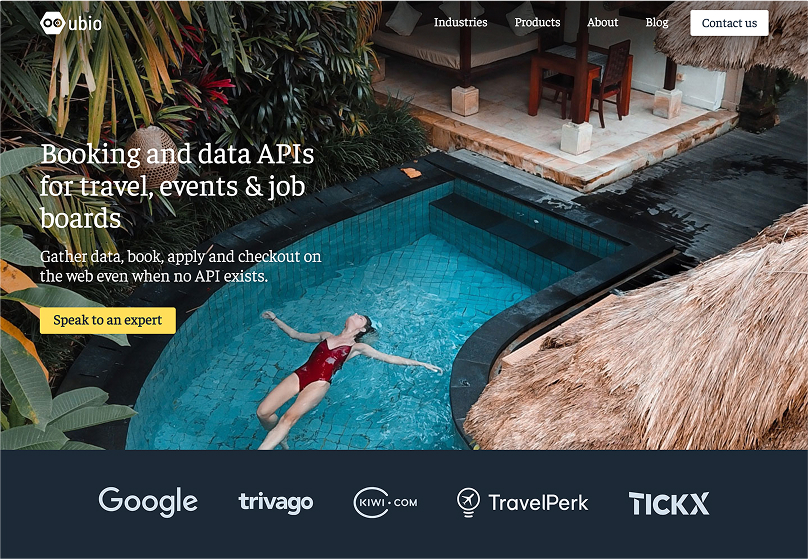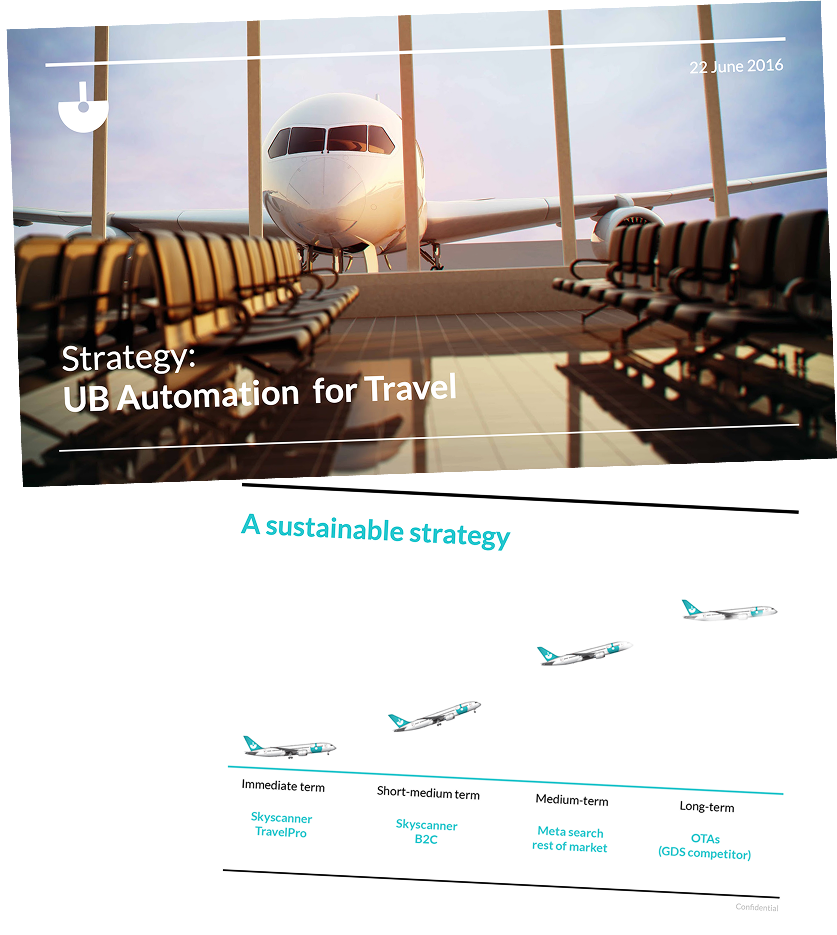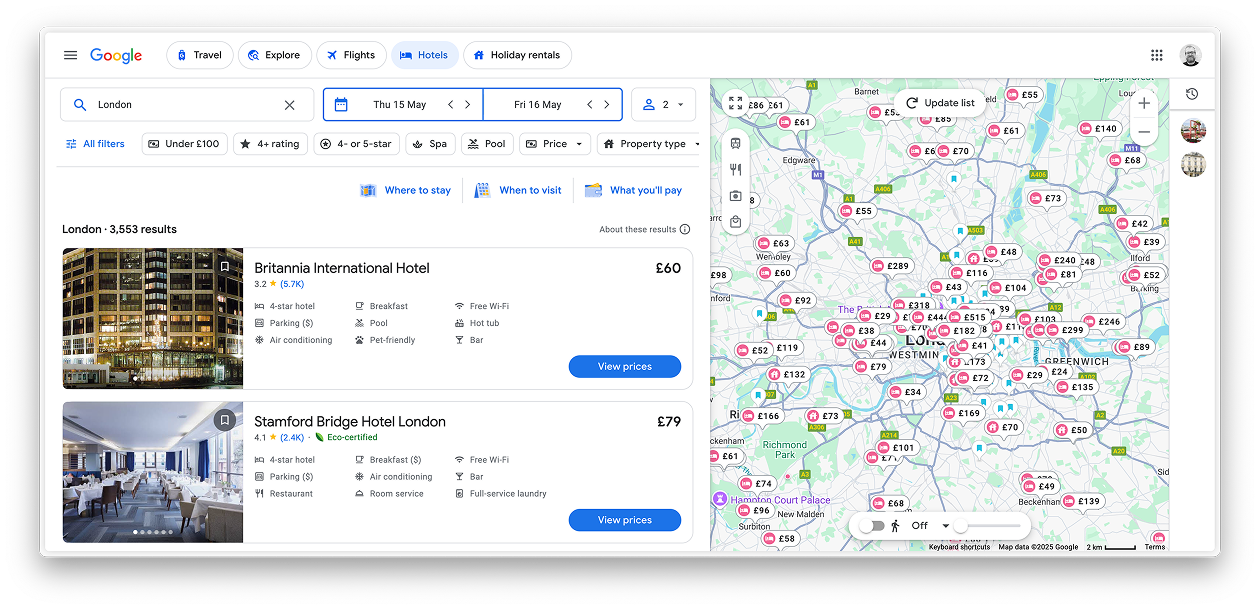

UBIO transformed from a four-person startup into a thriving international technology company with 60+ team members across Europe. Beginning with a vision to automate the web, we pivoted from B2C to B2B, becoming a leading provider of automation technology serving Google, Trivago, and Microsoft.
As co-founder and COO, I led UBIO's operational evolution through multiple growth phases, fundraising rounds totaling millions, and critical strategic pivots. Truthfully, it wasn't always an easy journey. We had challenges and setbacks as well as great leaps and wins. But by establishing scalable infrastructure, fostering a remote-first culture and building cross-functional alignment, I created the foundation that enabled UBIO to become a leader in web automation for travel, events, and recruitment. This is the story of Ops for growth.
UBIO began with a vision to solve the fragmented nature of online shopping. Our founding team created a 'universal basket' (the 'UB' in UBIO) where shoppers could add items from any retailer and check out in one go, using sophisticated automation technology that shopped on behalf of users behind the scenes.

As operational leader, I established our corporate structure while facing the classic startup challenge: building a viable product with minimal resources while seeking sustainable funding. After ten months of bootstrapping, we secured our first small investment round. At this stage, I created a light-touch operational framework that adapted to our available resources while maintaining focus on core development.
Our acceptance into Techstars London 2014 was pivotal. During this period, I developed a more formalised company structure, implemented our first meeting frameworks, established our EMI share options scheme, and created initial recruitment processes.
The key operational principle I established was flexibility and resilience, creating systems that could withstand uncertainty while maintaining momentum. Best of all, we had a working product.
By our third year, our B2C approach faced significant challenges. Recognising the need for change, I led an analysis that revealed opportunities in the travel sector, where metasearch companies were losing customer engagement through their 'click-out' model.

I proposed a strategic pivot to the board, repositioning our technology to allow metasearch companies to keep users on their platforms while our systems handled bookings behind the scenes. This shift required rethinking our strategy, restructuring priorities, and managing investor expectations.
As we gained traction in travel, I implemented key structural improvements:
A unique challenge emerged in building the team needed to train our system. After researching outsourcing, I established our own team in Romania (The Automation Team, aka The A-Team, of course) creating a wholly-owned subsidiary, navigating cross-border requirements, and including non-UK staff in our equity program.
The key principle that emerged was adaptability within structure, creating systems robust enough to withstand major shifts while remaining flexible.
With traction in travel, we entered significant growth that required more sophisticated frameworks. I introduced formal Company Objectives sessions, established departmental structures, initiated cross-functional collaboration and expanded operational policies as we grew beyond travel into financial services and events.
By 2017, we'd established a remote-first culture that expanded our talent pool, reduced office costs, and built resilience that proved invaluable during the pandemic.
We secured relationships with industry leaders including Google and Trivago. Our relationship with Trivago culminated in a strategic investment of several million pounds in 2022, where I managed the complex legal and corporate governance aspects.

As we approached 50 staff across multiple countries, alignment became challenging. I observed tensions between Commercial and Engineering/Product teams, addressing this through facilitated cross-team meetings, joint planning sessions, and establishing OKRs for unified objectives.
The key principle during this period was systematic alignment, creating frameworks that united teams while maintaining agility.
As UBIO evolved, so did our leadership structure. After our pivot to B2B, I temporarily transitioned from COO to Chief Product Officer when we hired a separate COO/CFO, allowing me to focus on product development during a critical growth period.
A year later, I resumed leadership of both Operations and Product. This dual role provided unique insights across the business, creating tighter alignment between product development and operational capabilities.
During my tenure as CPO, I established key product development practices, including formal roadmap processes, structured planning meetings, and feedback loops that aligned product metrics with business objectives.
In the final phase of my UBIO journey, I identified a critical misalignment between our sales approach and internal organisation. We were selling by vertical but were organised by product. I developed a comprehensive team reorg plan to align our structure with our market approach.
The key principle that emerged was integrative leadership – seeing across functional boundaries and creating structures unified around customer needs.
By 2024, UBIO had transformed into a thriving technology company with:

Throughout UBIO's journey, several core operational principles guided my approach:
Build frameworks that provide necessary structure without limiting flexibility, establishing operational rhythms while allowing teams freedom in execution.
Foster connection points between departments, creating opportunities for interaction through joint planning sessions and shared objectives.
Recognise that operational excellence depends on engaged team members, developing processes that balance accountability with autonomy.
Implement structures that satisfy board requirements while maintaining entrepreneurial agility, with tiered systems that allow day-to-day operations to maintain momentum.
Bridge the gap between commercial promises and technical realities through transparent roadmaps and joint accountability.
These principles and approaches continue to inform my operational leadership philosophy. The UBIO journey demonstrates that effective operational infrastructure is not just about implementing processes, it's about creating systems that enable talented people to collaborate effectively in pursuit of ambitious goals.
The true test of operational leadership is not whether you can build perfect systems from the start, but whether you can create frameworks that evolve appropriately as your company grows and faces new challenges. UBIO's transformation from startup to scale-up proves that with the right operational foundation, ambitious technology companies can navigate bumpy roads and huge pivots, grow internationally and deliver value to enterprise clients without losing their entrepreneurial spirit.
If you're ready to transform how your business operates and delivers value, or want to find out more, let's talk about how Fractional COO and Scaleup Advisory services can help you.
Schedule a discovery call Contact Mark Mark on LinkedIn
Mark on LinkedIn